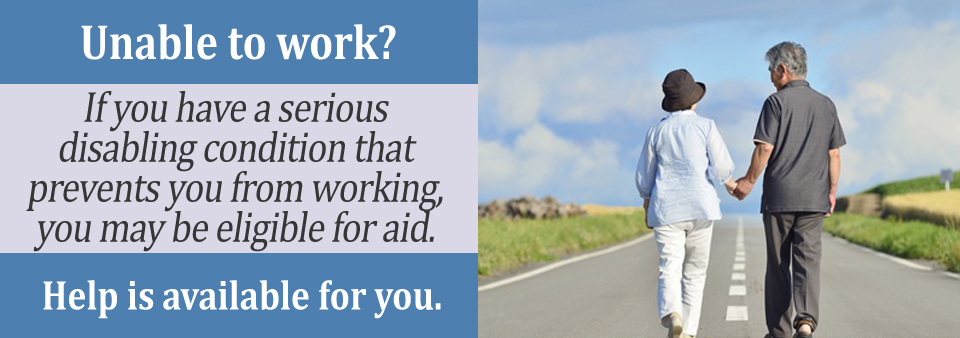In 2017, Pennsylvania Governor Tom Wolf signed into law a comprehensive bill aimed at improving access to the right level of care for people that suffer from strokes. As the third leading cause of death in the state, stroke advocates welcomed the legislation. The new law is just one way that Pennsylvania is working to enhance the outlook for stroke victims.
If you live in the state of Pennsylvania and have had a stroke, there are several resources available to you. The Social Security Administration (SSA) has established programs aimed at assisting those who are unable to work due to a permanent health disability.
Neurologists in Pennsylvania
In the blink of an eye, a stroke can change your life forever. One of the first medical professionals to arrive at your bedside is likely to be a neurologist. Neurologists are doctors who specialize in medical disorders of the brain and central nervous system. They are the leading experts when it comes to stroke care.
In addition to playing a pivotal role in your health recovery, the assistance of your neurologist will also be essential in obtaining the disability benefits that you are seeking. The SSA will turn to your neurologist for relevant medical information. It will be the responsibility of your neurologist to submit medical records, including his or her opinion on your prognosis. The more thorough your doctor is with documentation, the better the chances of winning a disability award. Therefore, it’s important that you communicate your efforts to obtain Social Security benefits to your neurologist.
If you have not established a good working relationship with a neurologist in the Pennsylvania area, here are three well-regarded practices within the state:
Penn Medicine
Penn Neuroscience Center
Perelman Center for Advanced Medicine
3400 Civic Center Boulevard
South Pavilion, 2nd Floor
Philadelphia, PA 19104
(800) 789-7366
pennmedicine.org/for-patients-and-visitors/find-a-program-or-service/neurology
UPMC
Department of Neurology – Stroke Institute
1350 Locust Street, Suite 105
Pittsburg, PA 15219
(412) 232-8840
upmc.com/services/stroke-institute
Lehigh Valley Health Network
LVPG Neurology
1250 S Cedar Crest Blvd, Suite 405
Allentown, PA 18103-6224
(610) 402-8420
lvhn.org/facilities_directions/hospital_locations/physician_practices/lvpg_neurology–1250_cedar_crest

Stroke Support Groups in Pennsylvania
Many aspects of healing must occur after having a stroke. While it’s easy to focus on the physical body, it’s important not to neglect the emotional and social impacts that a stroke may have on any given individual.
Given that depression, anxiety, and feelings of isolation are common after a stroke, establishing a strong support system helps to ward off some of these dangerous side effects. Scientific studies have found that social support is just as crucial to stroke recovery as physical therapy.
While you might have friends and family that offer support, they may have limitations in being able to help you. Many stroke survivors have found healing by joining a stroke support group. Stroke support groups allow survivors to connect with others who are facing similar obstacles and feelings. They can offer much-needed comfort and information that is difficult to find elsewhere.
If you are interested in joining a stroke support group, here are three in the Pennsylvania area:
Community Stroke Support Group
Meets Every First Wednesday from 1:30 - 2:30 pm
Thomas Jefferson University Hospital
3rd Floor Rehab Unit
132 South 10th Street
Philadelphia, PA 19107
(215) 955-5299
True Life After Stroke (TLAS)
Meets Every Second Saturday from 10:00 am – 12:00 pm
UPMC Mercy
1400 Lucust Street
Pittsburg, PA 15219
(412) 232-8738
Brain Warriors
Meets Every 3rd Monday from 11:00 am to 12:00 pm
Kasych Pavilion, Conference Room
Allentown, PA 18103
(610) 402-9008
Applying for Social Security Disability for Stroke in Pennsylvania
Immediately following your stroke, you might be feeling scared, confused, and uncertain where to turn. You may be wondering how you will be able to support yourself or your family financially. There are resources available to individuals who have had a stroke within the state of Pennsylvania.
The Social Security Disability Insurance (SSDI) program is available to those who have become permanently disabled due to a health condition such as a stroke. As with all conditions listed in the Social Security’s List of Impairments, the Blue Book, the long-term effects of your stroke must be expected to last for at least one year following your brain injury.
Further, as the long-term effects of a stroke are not immediately known, the SSA will not consider stroke claims until a full three months have passed since the accident. Therefore, you must wait 90 days before submitting your application.
If you are ready to apply for SSDI benefits, you can easily do so online. Alternatively, you can visit one of the several Social Security offices within the state of Pennsylvania. Here are three recommended offices:
Philadelphia Social Security Office 19104
4240 Market Street
Philadelphia, Pennsylvania 19104
(800) 772-1213
Pittsburgh Social Security Office 15222
921 Penn Ave
Pittsburgh, Pennsylvania 15222
(800) 772-1213
Allentown Social Security Office 18102
41 North 4th Street
Allentown, PA 18103
(800) 772-1213
Can A Social Security Disability Lawyer Help Me for My Stroke in Pennsylvania?
While states throughout the nation have a backlog of disability determinations, Pennsylvania has some of the most extended wait times for disability awards in the country. If you are not granted a disability award for your stroke in the first step of the application process, it is possible that you could wait over two years for a decision.
Certainly, there is nothing that you can do to speed up the Social Security Administration’s wait times. However, you might be able to expedite the disability process by submitting a complete application right off the bat. An experienced disability lawyer can work with you to ensure that you have all of the supporting medical evidence required to give your claim the best chance of approval.